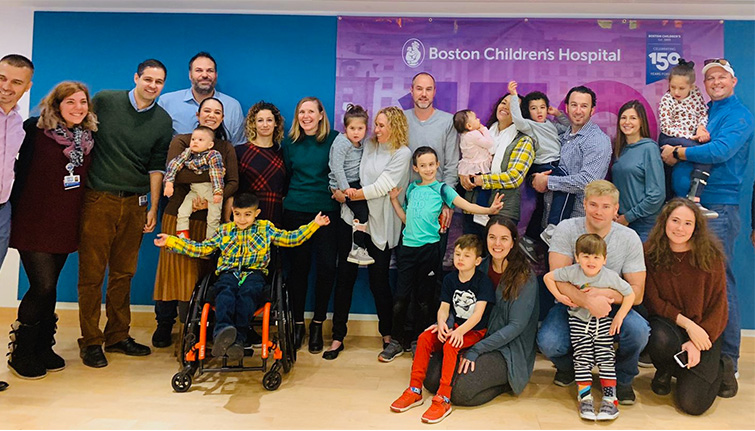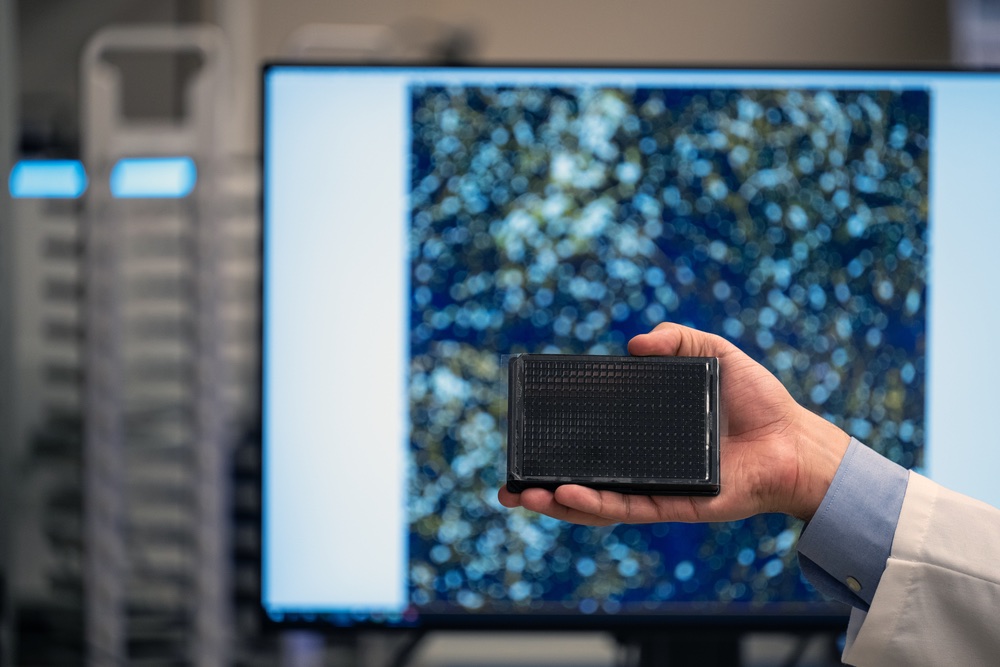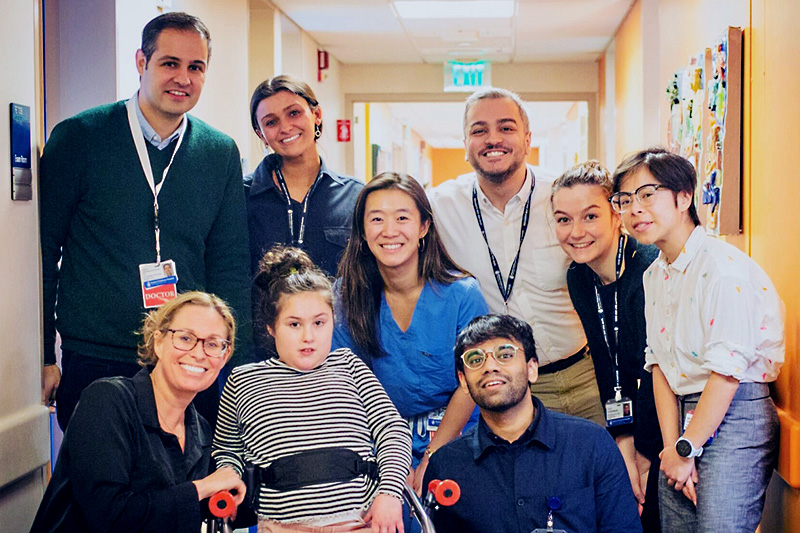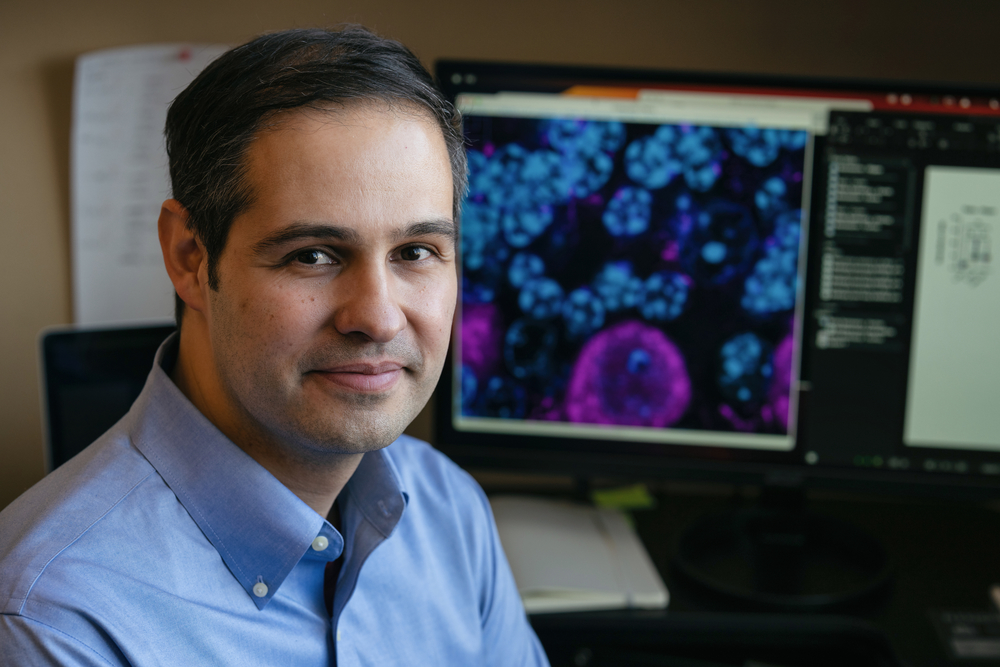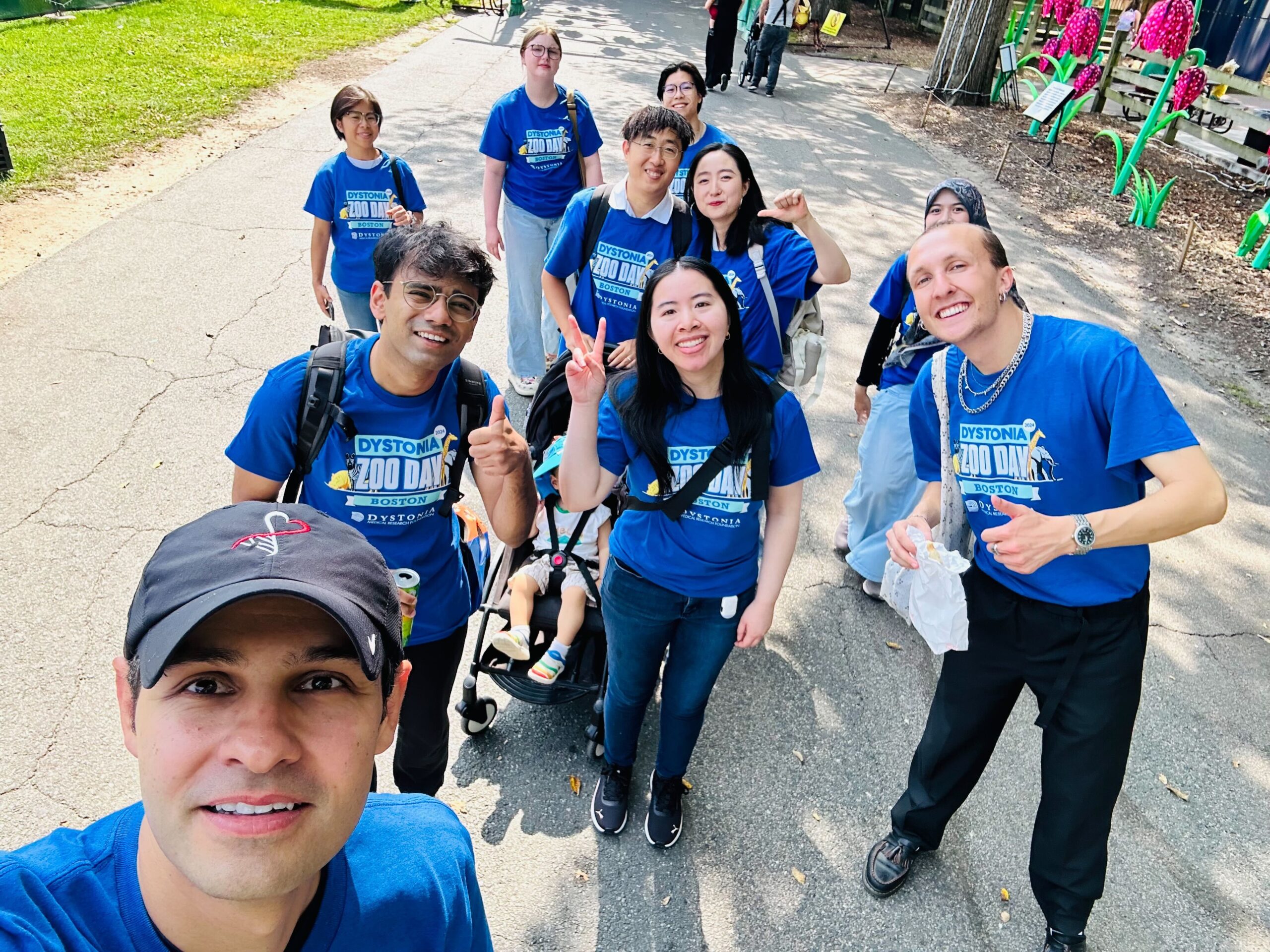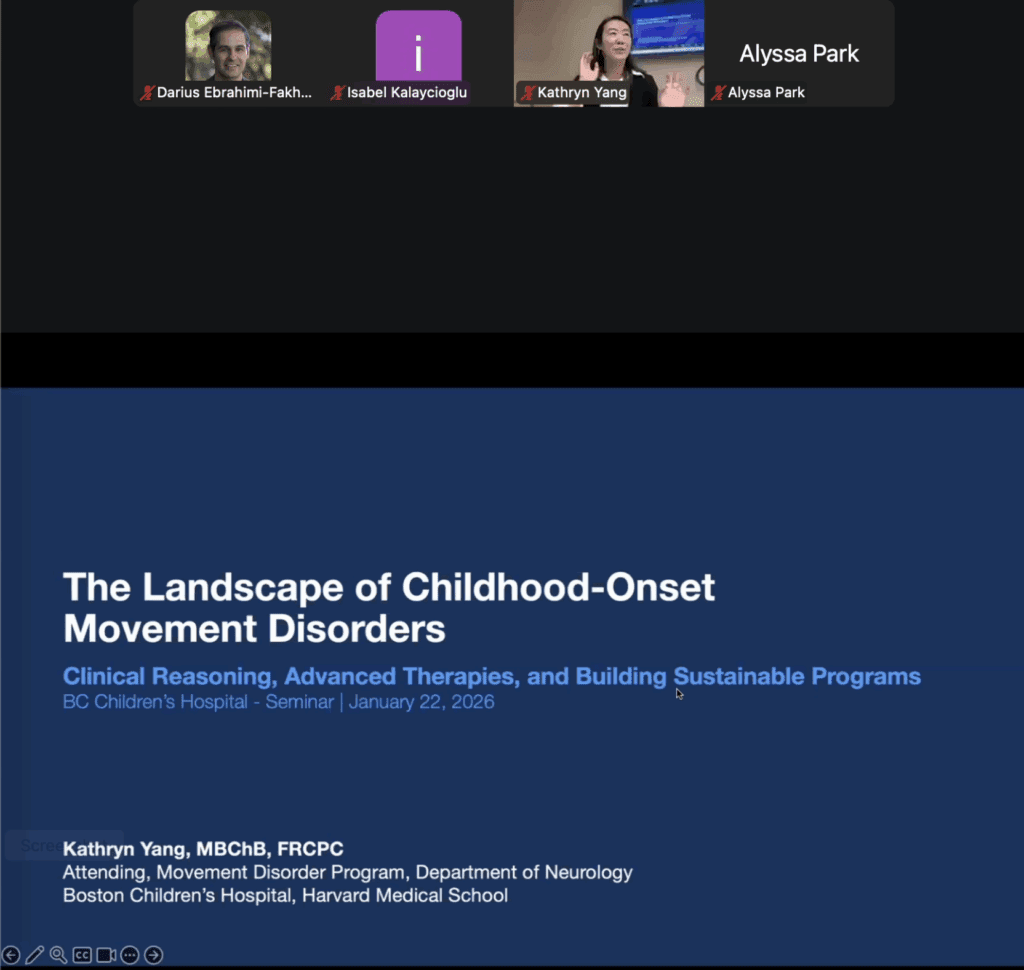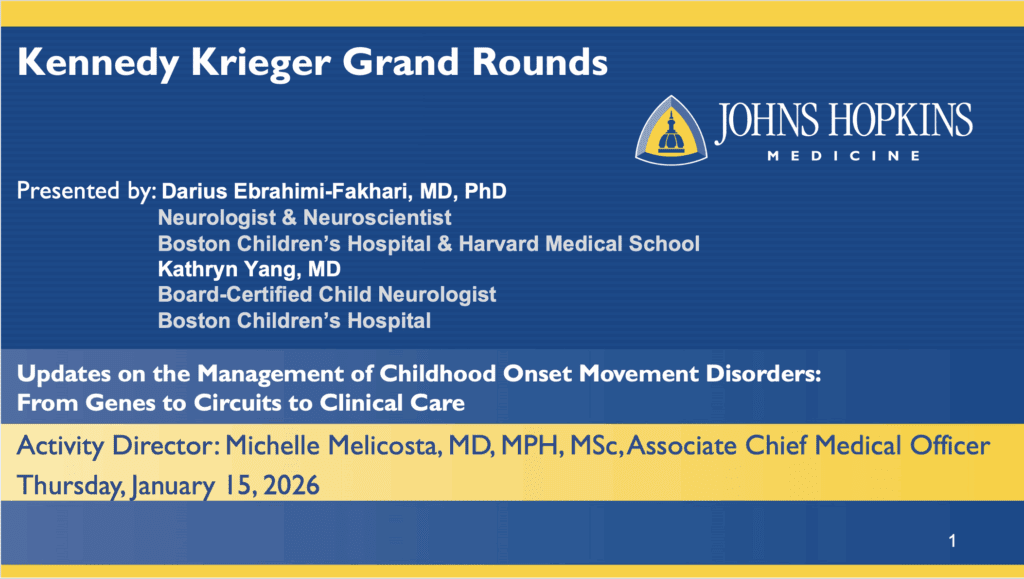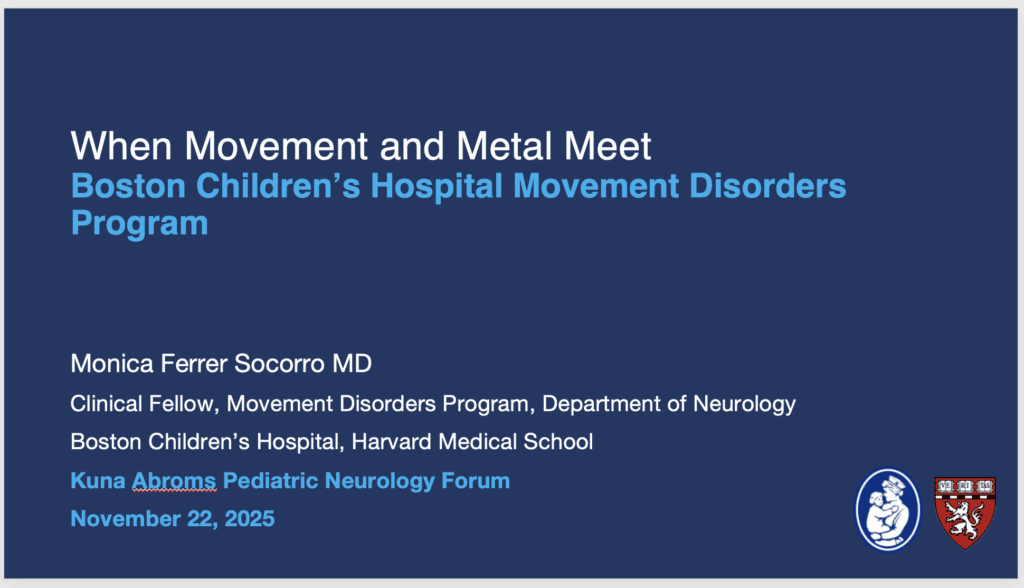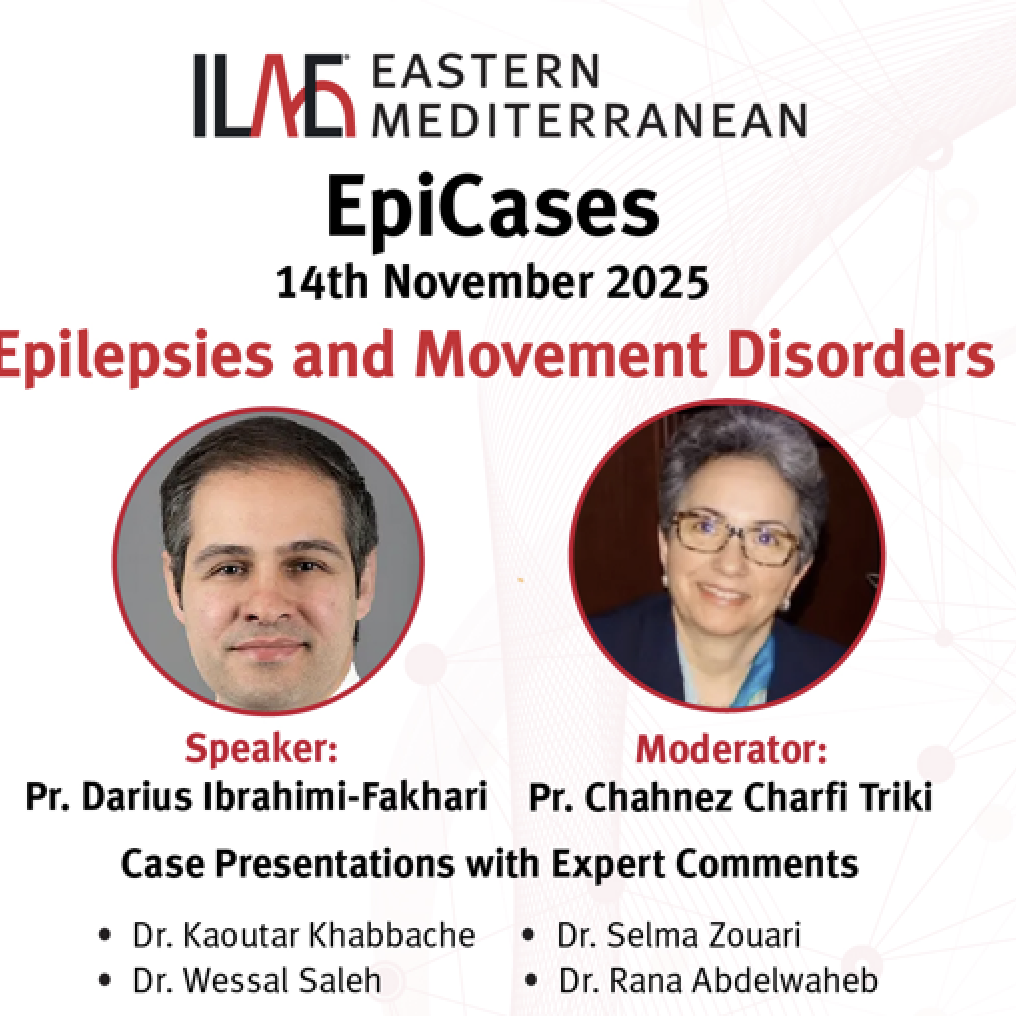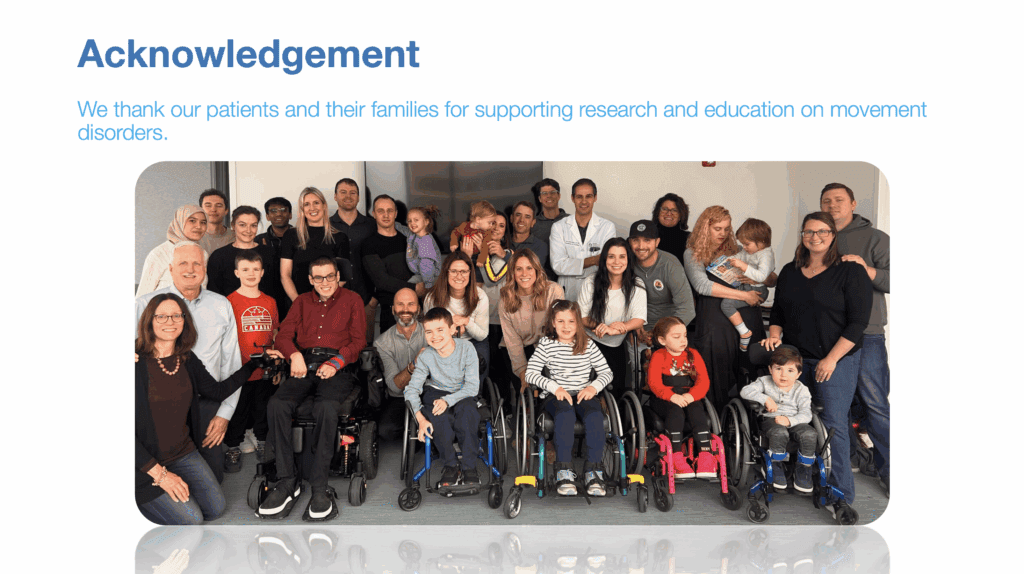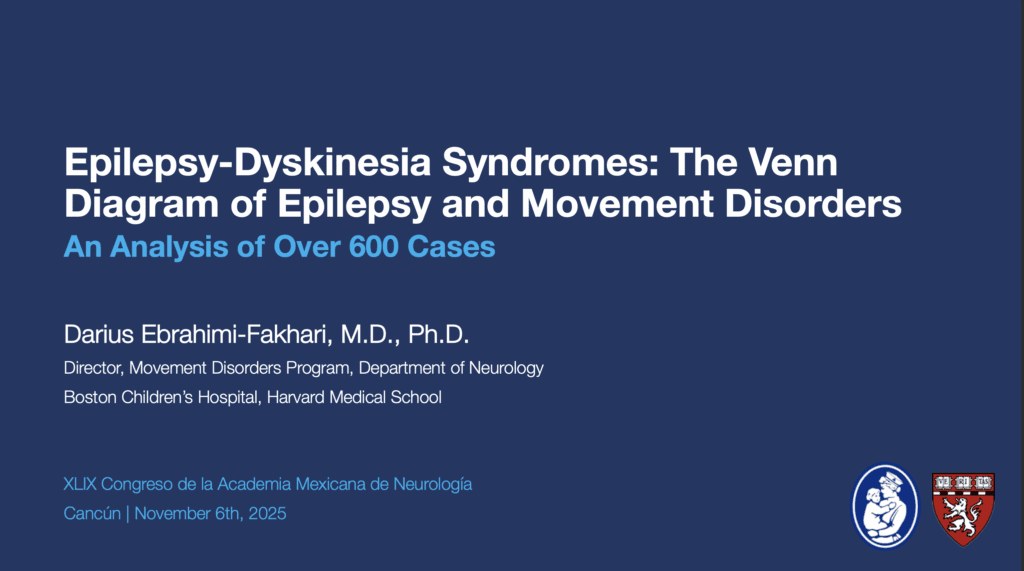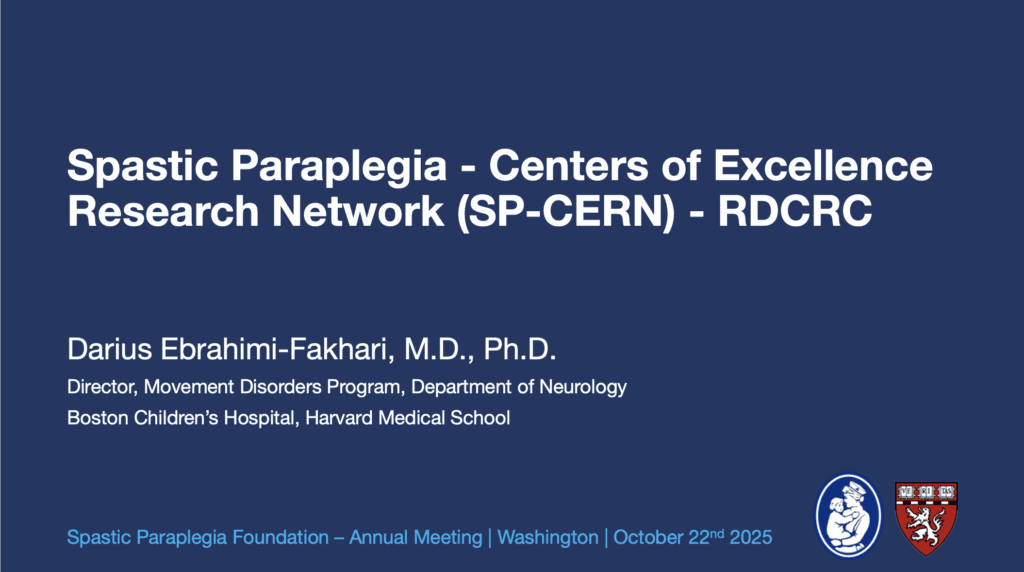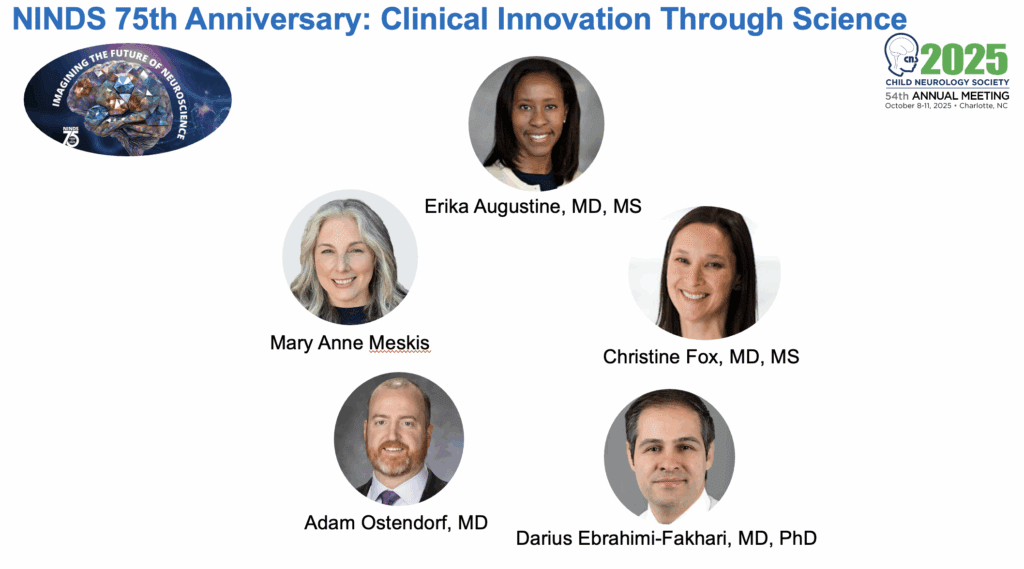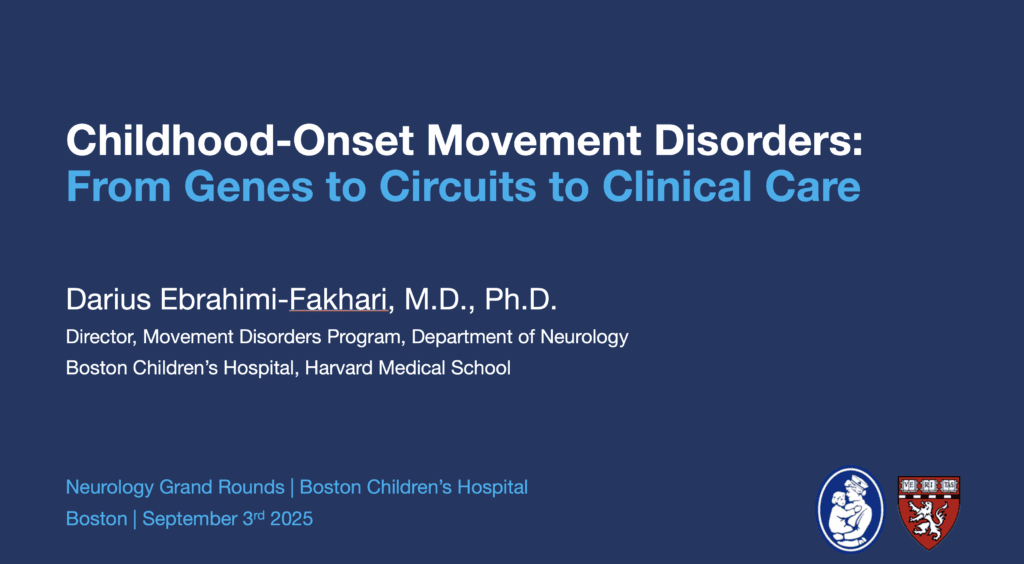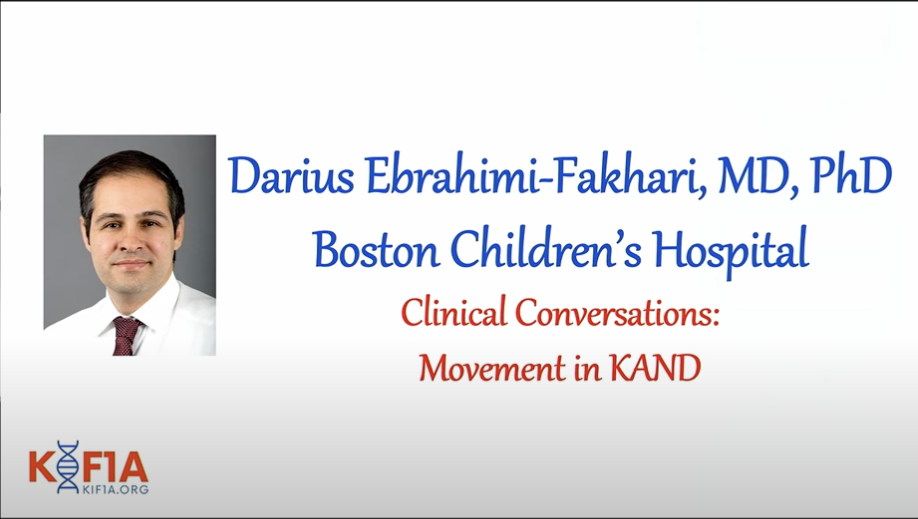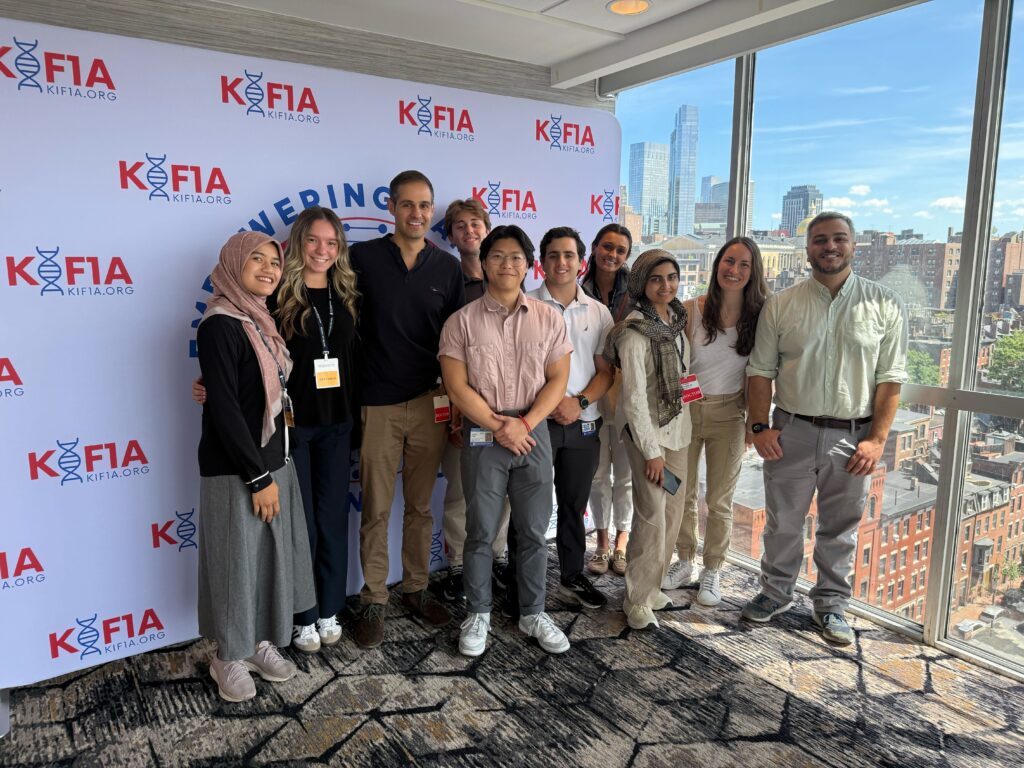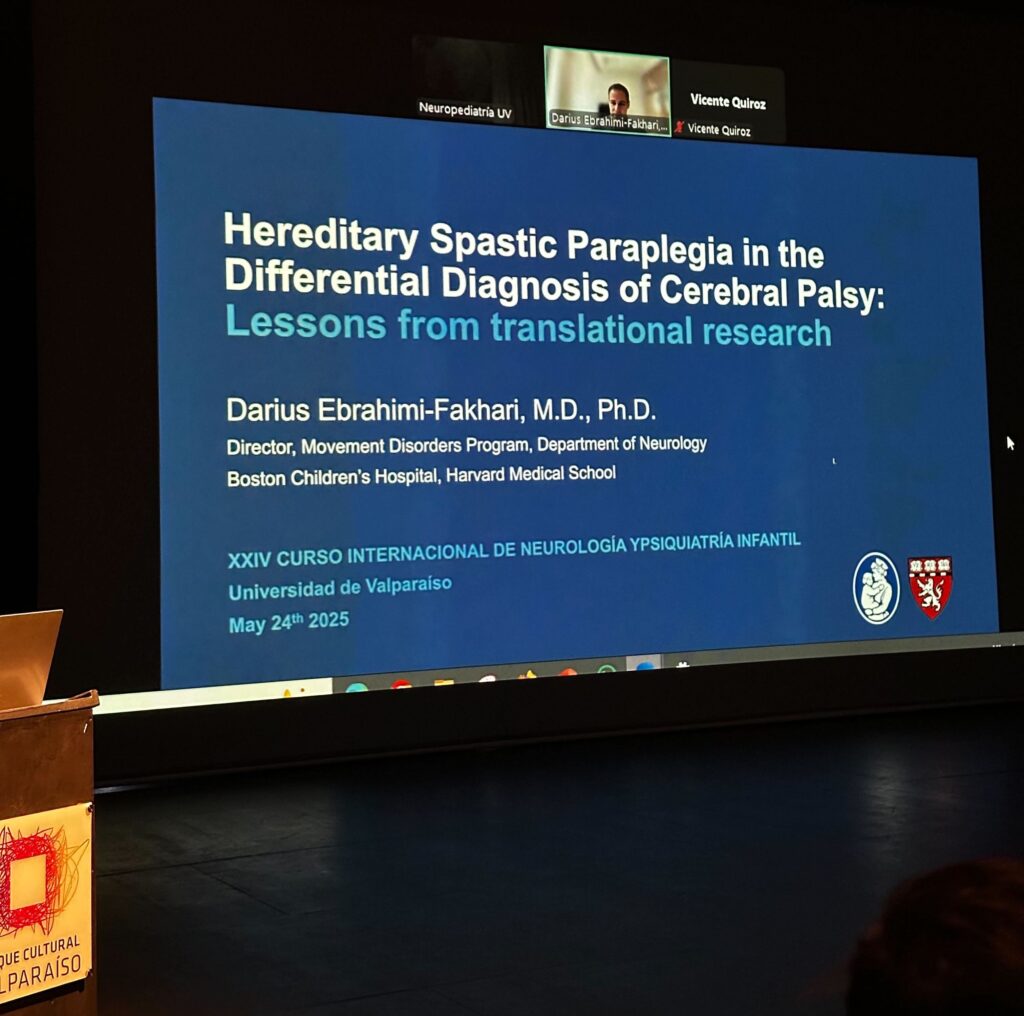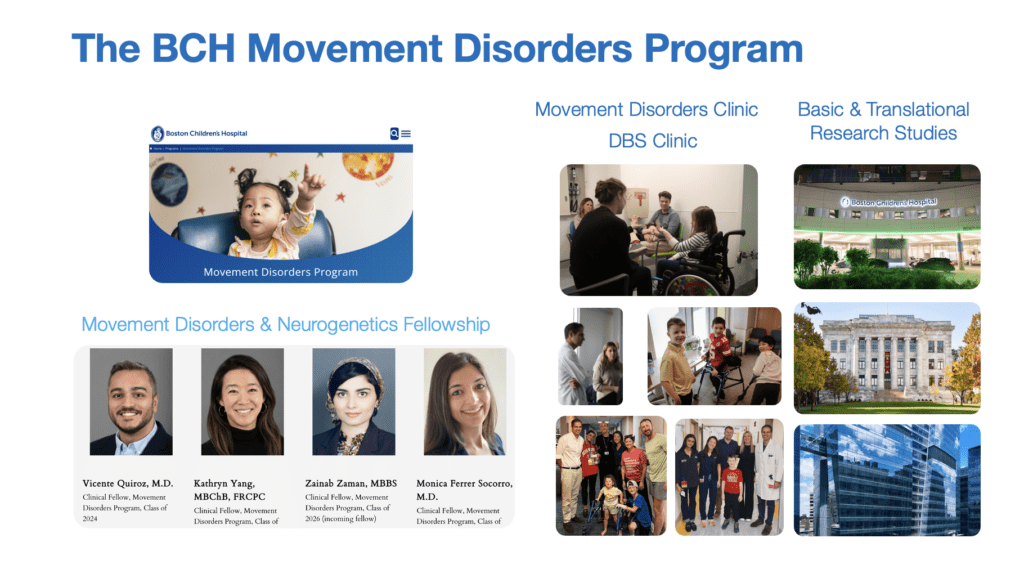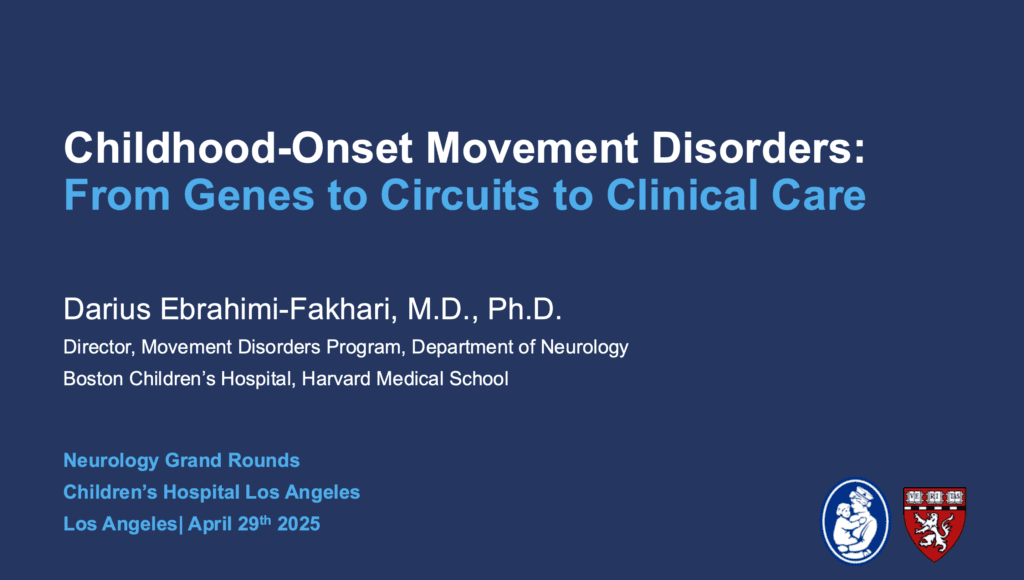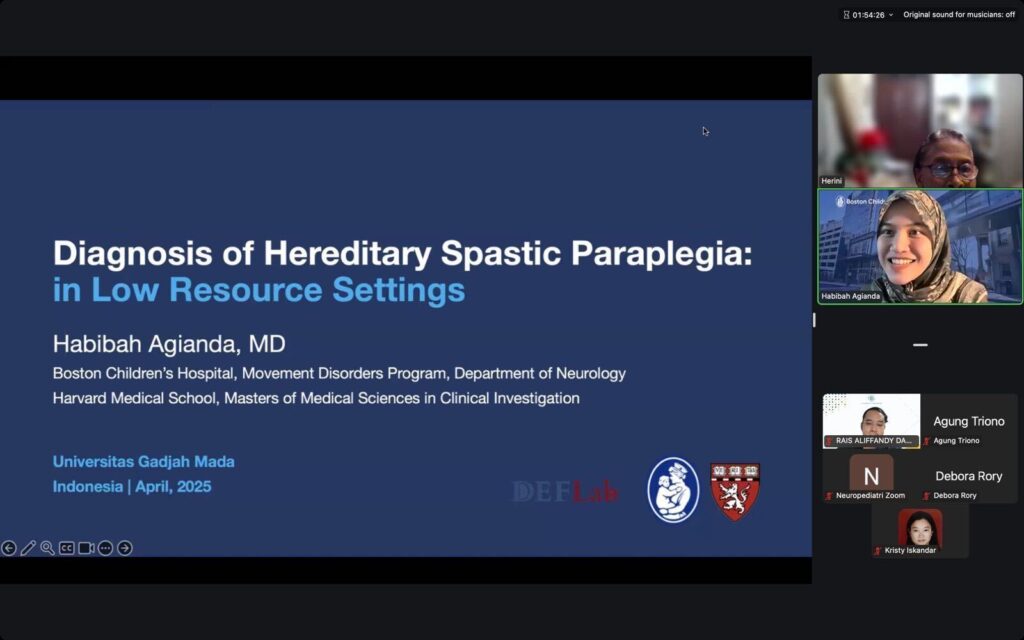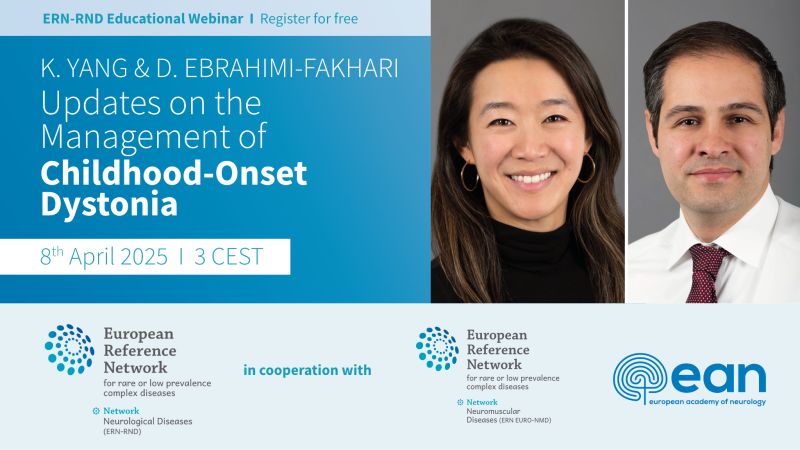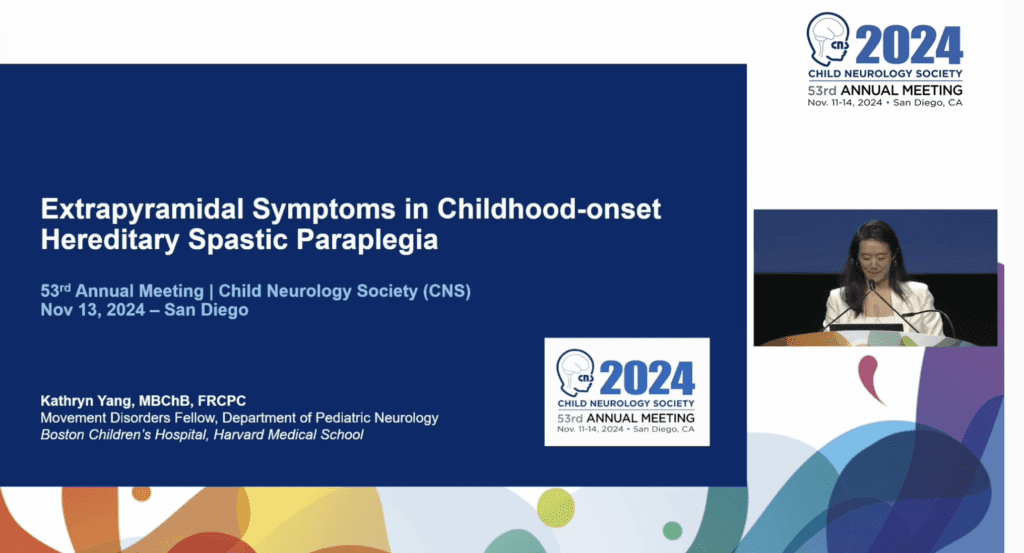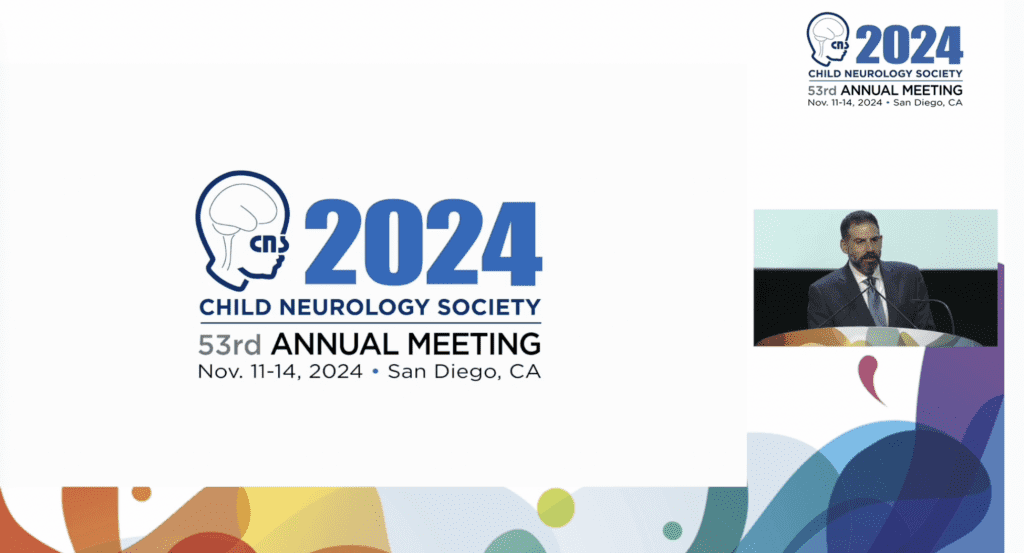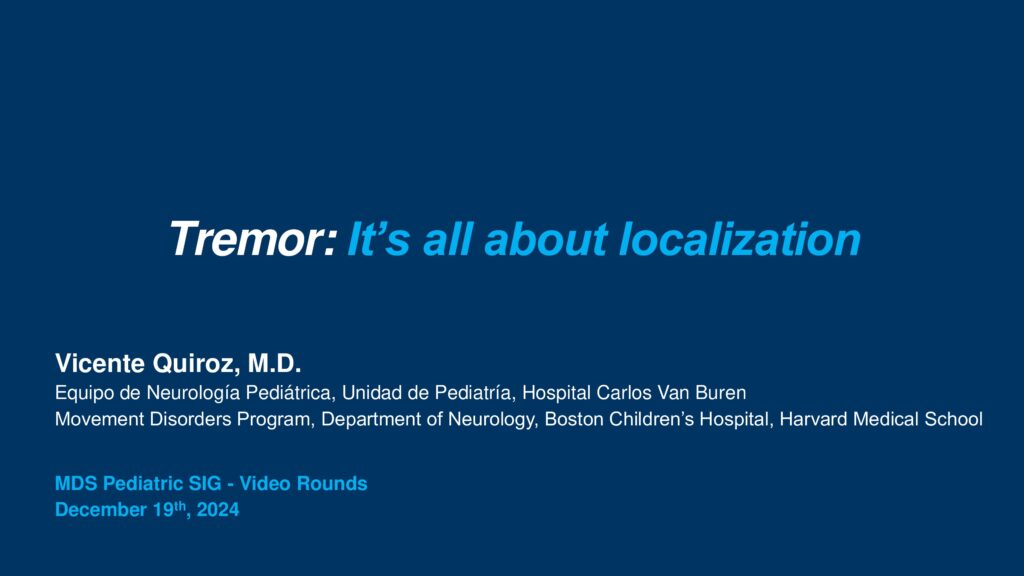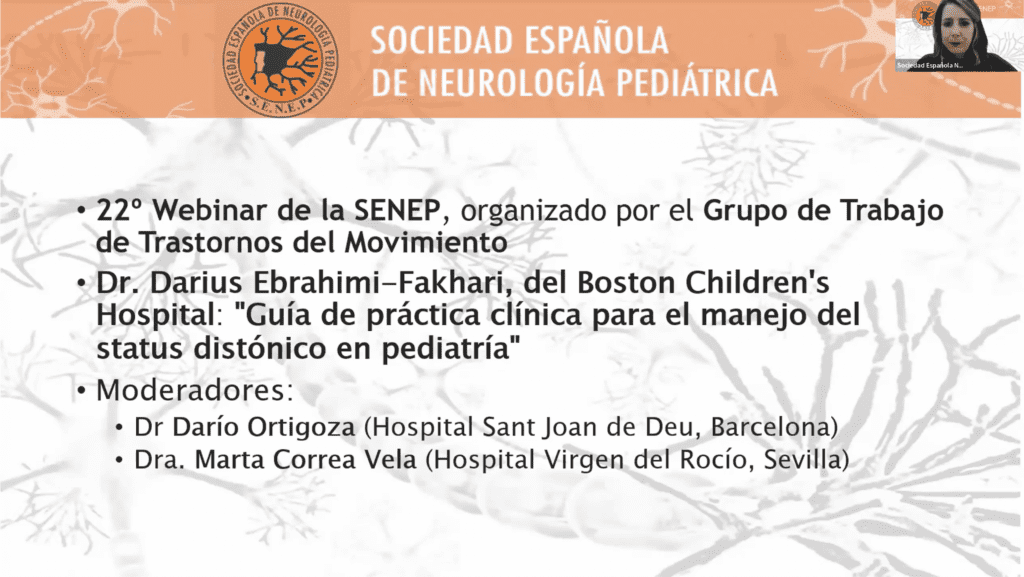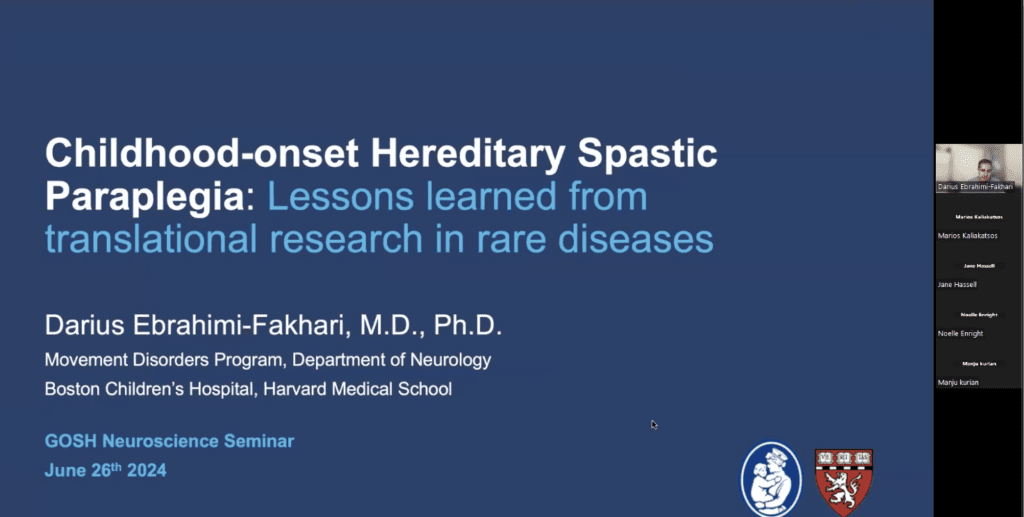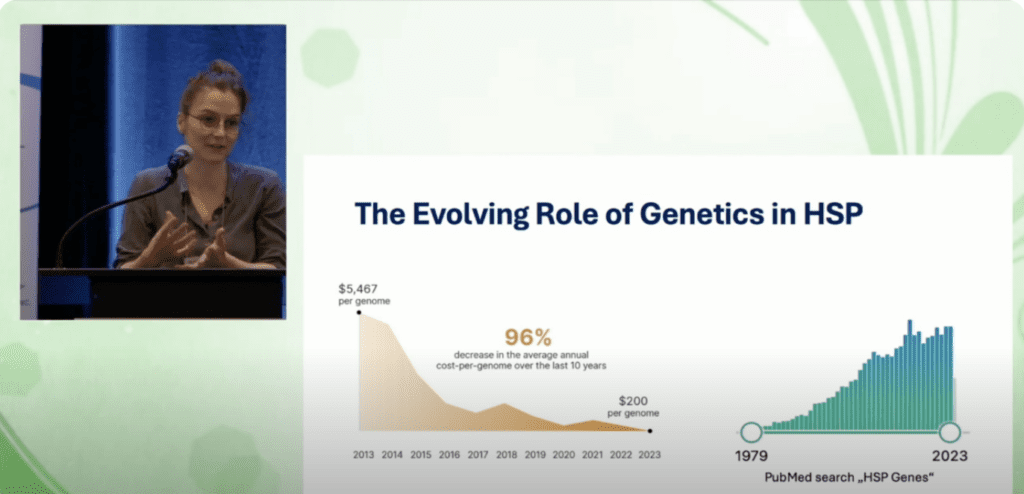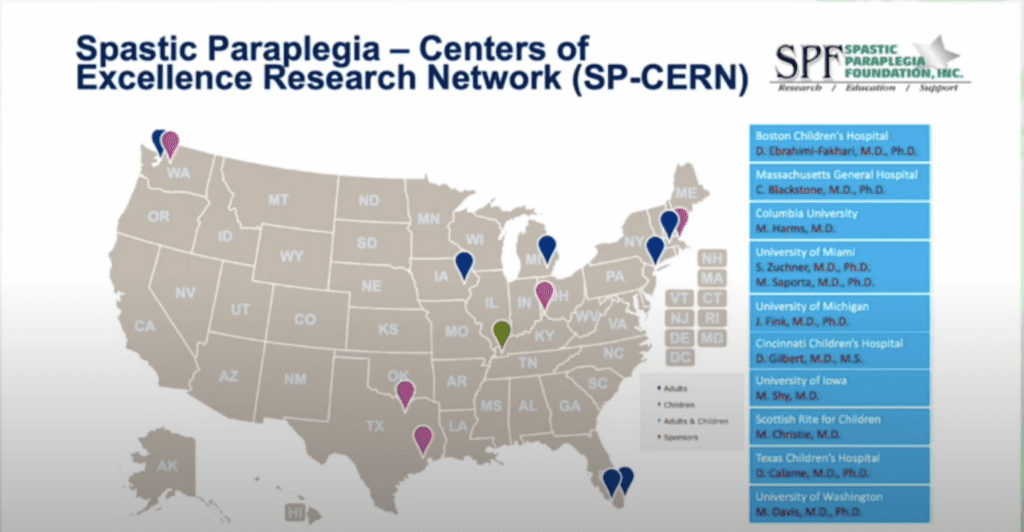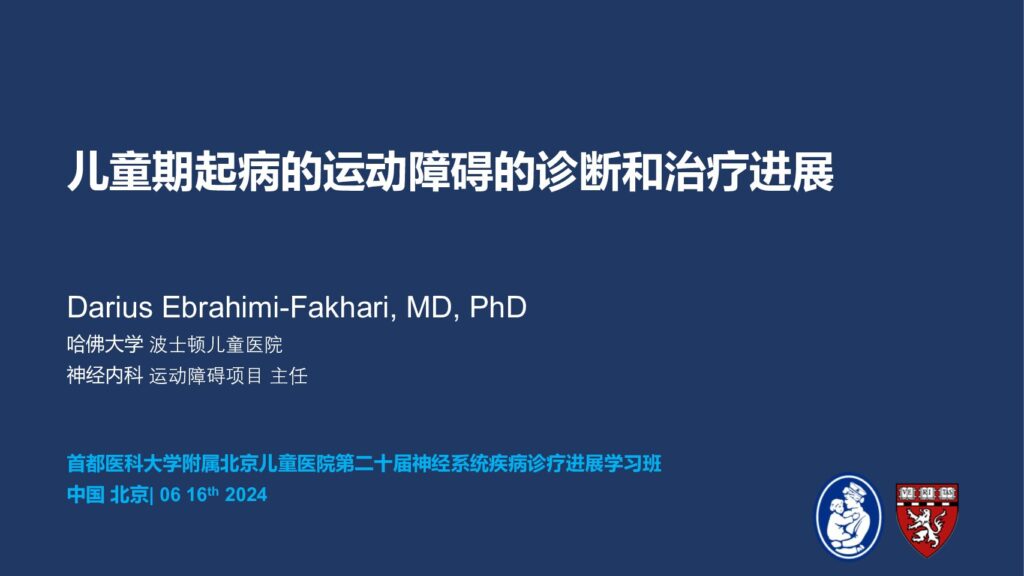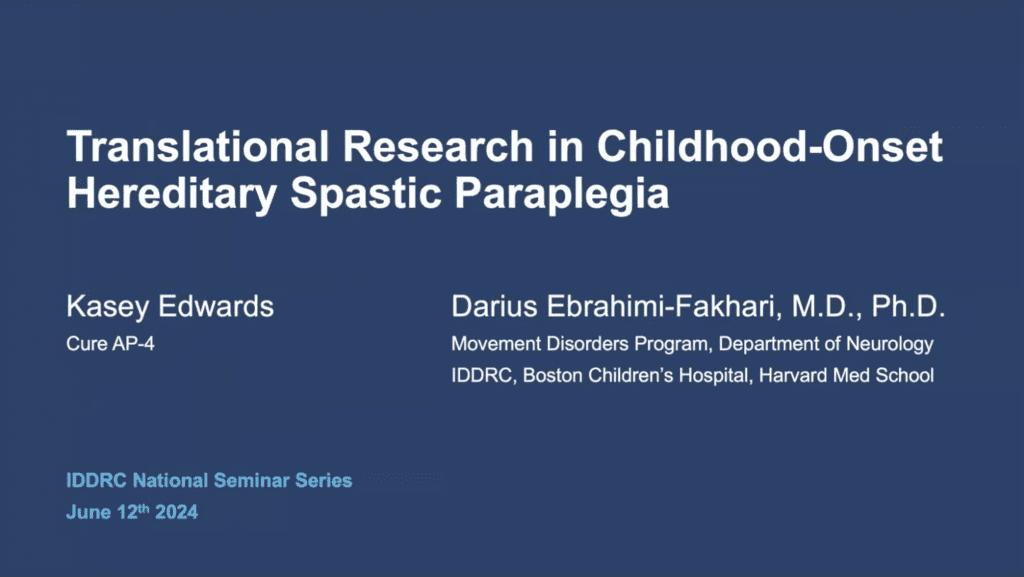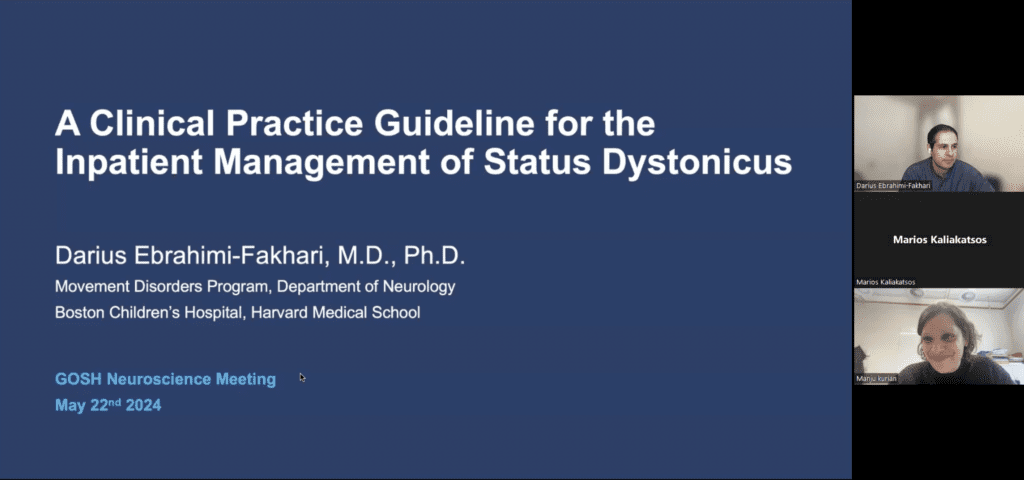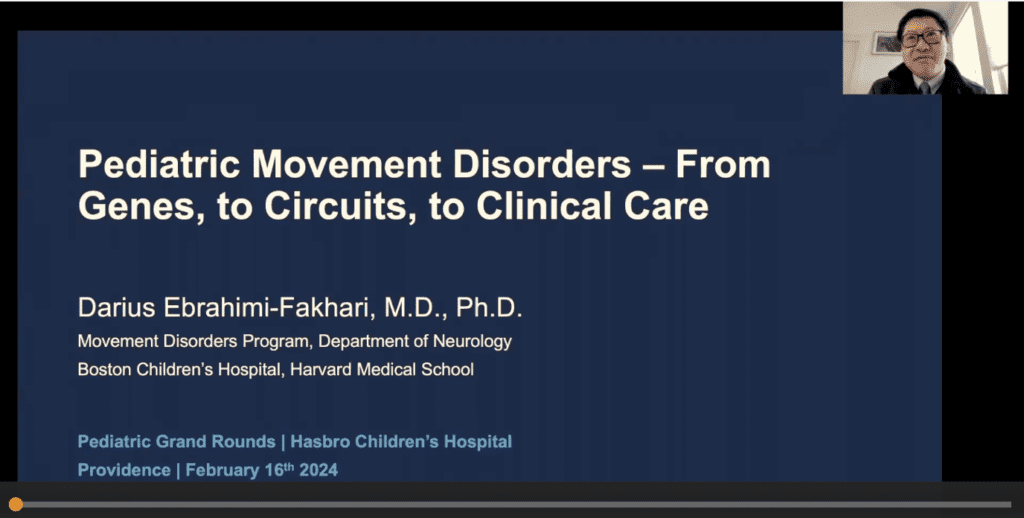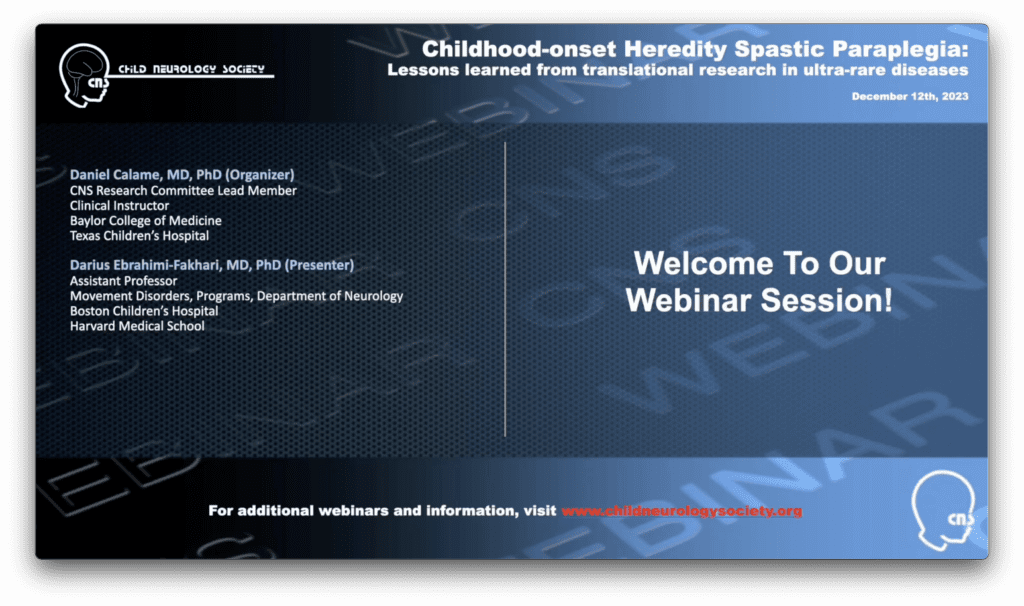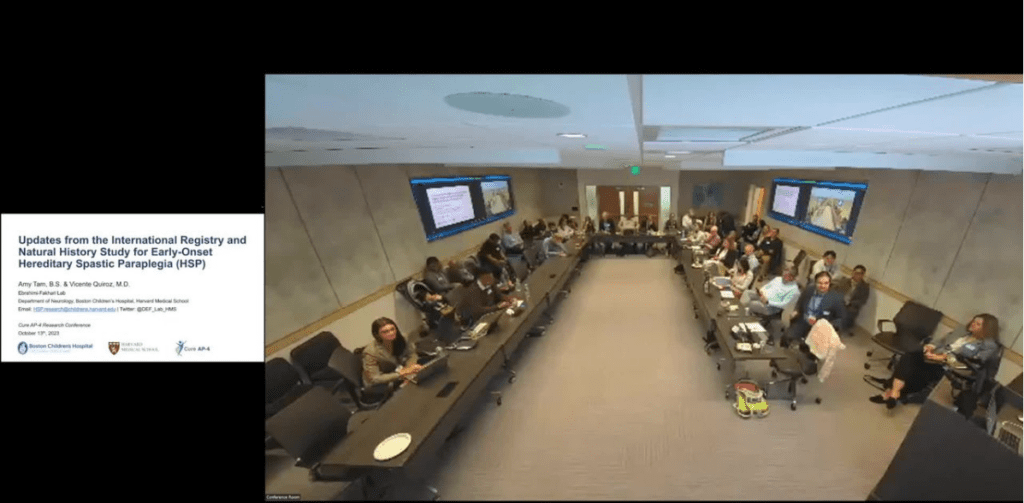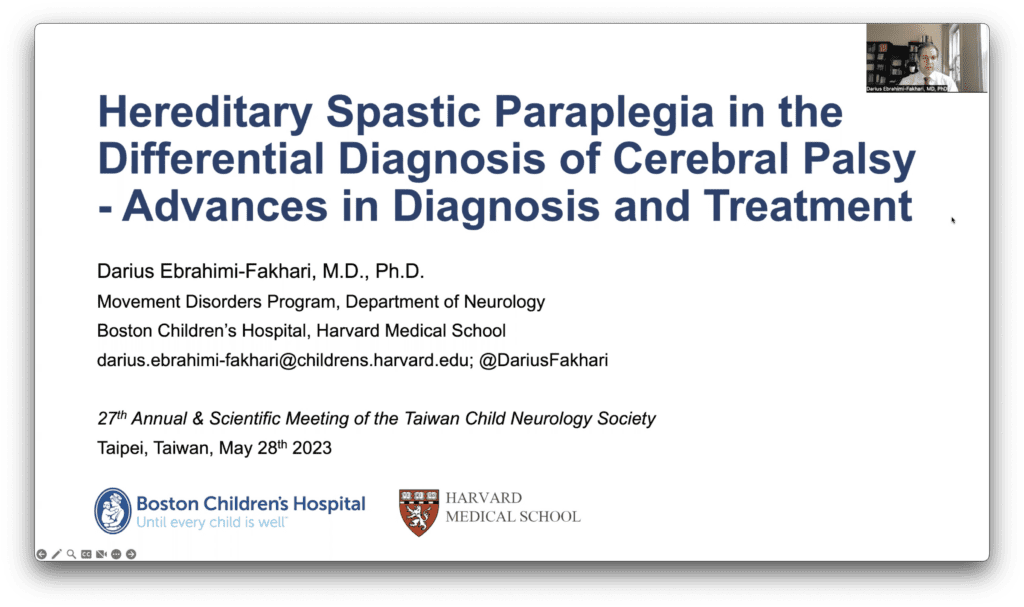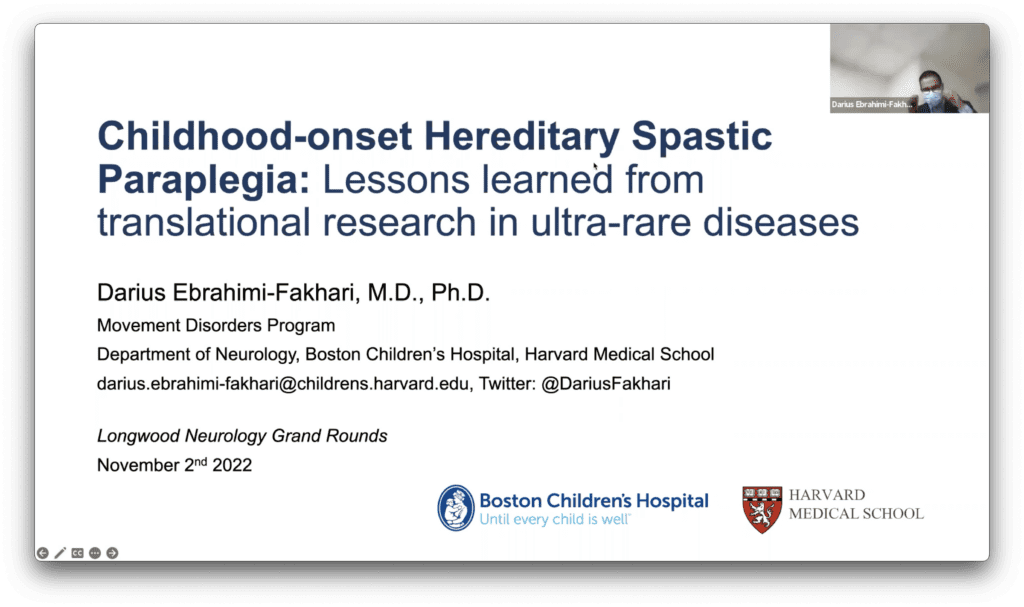Our approach to research is truly translational, as we merge two fundamental programs. Firstly, our clinical research program is dedicated to delineating the genetic foundations of childhood-onset movement disorders and neurodegenerative diseases. Through comprehensive clinical studies, we not only identify the genetic roots of these conditions but also prepare the groundwork for clinical trials. Our natural history studies and biomarker discovery efforts ensure clinical trial readiness, while simultaneously establishing a robust infrastructure for first-in-human and later phase pivotal clinical investigations. Secondly, our basic science research program investigates the cellular biology and mechanisms underlying neurodegeneration in childhood-onset movement disorders. We employ a multidisciplinary approach, integrating genetics, biochemistry, cell biology, pharmacology, high-throughput microscopy, and disease modeling. Through the utilization of cutting-edge techniques and model organisms such as human cell lines, induced pluripotent stem cell-derived neurons, transgenic zebrafish and mice, we aim to shed light on the complex processes underlying neurogenetic diseases. At our lab, we are passionate about bridging the gap between scientific discoveries and tangible clinical applications. Our ultimate goal is to improve the lives of children affected by neurogenetic disorders through the development of innovative and effective therapies.
The translational research in the Ebrahimi-Fakhari work is closely aligned with the clinical care of children and young adults in the Boston Children’s Hospital Movement Disorders Program and the Movement Disorders & Neurogenetics Fellowship Program.
